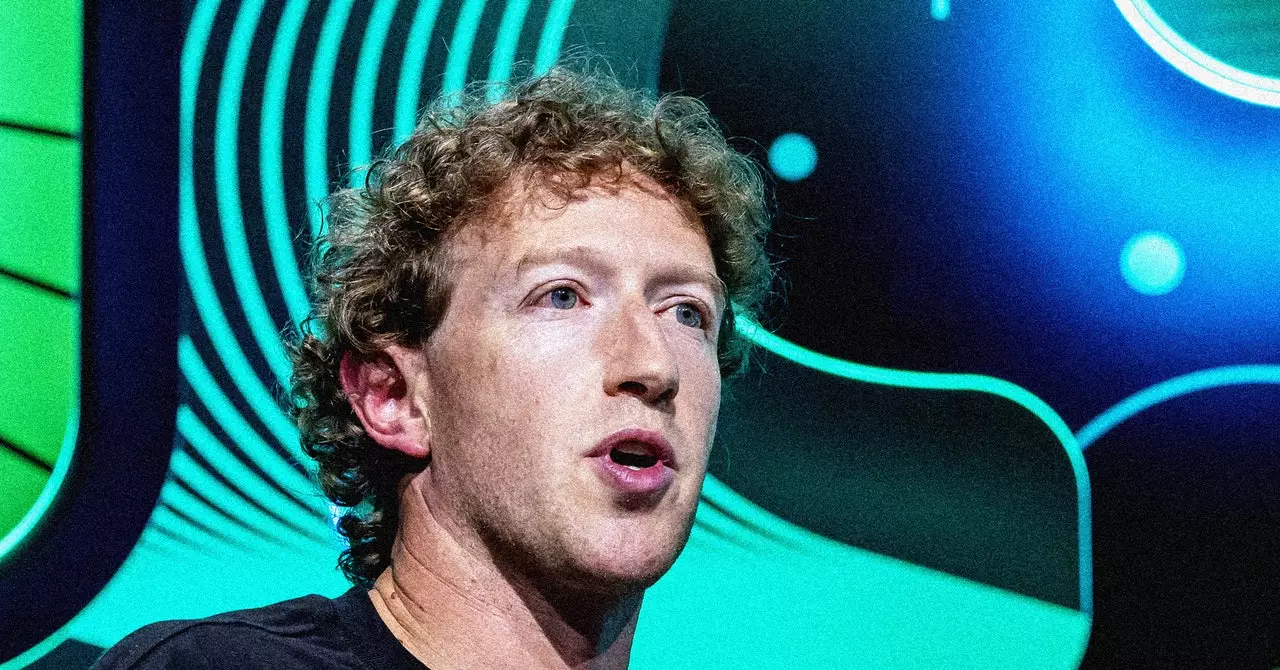In the evolving landscape of social media, the role of content moderation has become increasingly complex, often reflecting broader societal tensions and political movements. Notably, Mark Zuckerberg’s recent about-face on content moderation policies at Meta raises critical questions about trust, accountability, and the nature of truth in digital spaces. This article delves into Zuckerberg’s changing stance, examining the implications for both the platform and its users.
Just a few years ago, Zuckerberg positioned himself as a leader in the push for greater accountability within social media. During April 2018 discussions, he articulated the need for rigorous content moderation as a remedy for the spreading tide of disinformation and hate speech on Facebook. His commitment to hiring more human moderators and investing in artificial intelligence tools seemed a promising step toward fostering healthier online communities. Zuckerberg’s acknowledgment of the damage wrought by toxic content displayed a remarkable level of self-awareness, showcasing an apparent dedication to safeguarding user experience and integrity.
However, the recent transformation in his narrative signals a drastic pivot. In a brief social media announcement, Zuckerberg characterized his prior moderation policies as a “regrettable cave-in” to external pressures, particularly in response to government scrutiny during sensitive times like the COVID-19 pandemic. This abruptness raises questions about both his motivations and the broader implications for content regulation on Meta’s platforms. The decision to dismantle proactive takedown efforts and opt for a crowdsourced model of “community notes” illustrates a concerning shift toward laissez-faire governance of discourse, ultimately eroding the platform’s commitment to combat disinformation.
Zuckerberg’s recent declaration that the goal of fostering “free expression” justifies the allowance of potentially harmful content is alarming. His assertion that, by 2025, prioritizing free speech could outweigh the risks associated with misinformation reflects an ideology that values individual opinion over collective safety. While the principle of free speech holds considerable societal appeal, it becomes problematic when it undermines efforts to counter falsehoods that can lead to real-world consequences.
The rebranding of journalistic integrity, previously upheld through fact-checking measures, in favor of community-driven assessments reflects a disconcerting trend. By classifying traditional media, including the practices that engage in rigorous fact-gathering, as merely part of a “legacy” system that stifles free expression, Zuckerberg risks normalizing a marketplace of ideas devoid of credible benchmarks. As the information ecosystem becomes more fragmented, the challenge lies in discerning truth from fiction, further exacerbated by a culture that elevates opinion over informed consensus.
The shift from employing fact-checkers to relying on user-generated community notes poses a fundamental challenge to accountability in discourse. Fact-checkers, despite facing criticism, offer a framework rooted in evidence and credibility. The transition to community notes, while seemingly designed to democratize narratives, disempowers trusted sources of information in favor of subjective, often unverified assertions.
This approach mirrors broader societal trends where established authorities are increasingly dismantled, yielding room for the rise of unaccredited voices. Zuckerberg’s dismissal of professional journalism as interchangeable with casual opinions threatens to create a reality where culpability is lost amidst a chaotic whirlpool of untethered claims. As trusting relationships between users and platforms erode, so too does the potential for civil discourse.
Zuckerberg’s recent policies showcase a troubling alignment with the rhetoric and tactics adopted by figures like Donald Trump, who have openly questioned the viability and reliability of journalistic integrity. As Trump has claimed, undermining media credibility distorts public perception and nurtures a culture of skepticism towards substantiated facts. In the same vein, Zuckerberg’s decisions can be seen as a capitulation to pressures that aim to dismantle the foundations upon which credible information is built, ultimately threatening societal cohesion.
The repercussions of this strategic pivot may echo throughout the digital landscape, influencing not only user interactions but also informing the nature of discourse beyond the confines of social media. As more platforms adopt similar stances, the line between fact and fiction blurs, establishing a fertile ground for misinformation to flourish.
Mark Zuckerberg’s shift from vigilant content moderation to a stance favoring ‘free expression’ at the expense of accountability encapsulates a significant ideological transformation within Meta. The ramifications are profound and foreboding, as they may pave the way for a perilous trajectory where misinformation reigns unchecked, trust in media diminishes, and the essence of informed public discourse is diminished. It compels us to reconsider the delicate balance between freedom of speech and the responsibility inherent in creating spaces for truthful dialogue.

